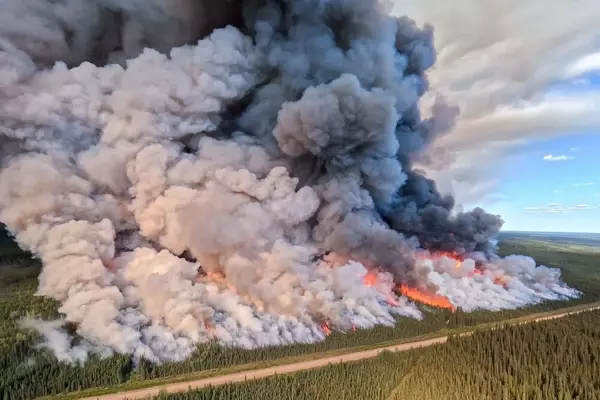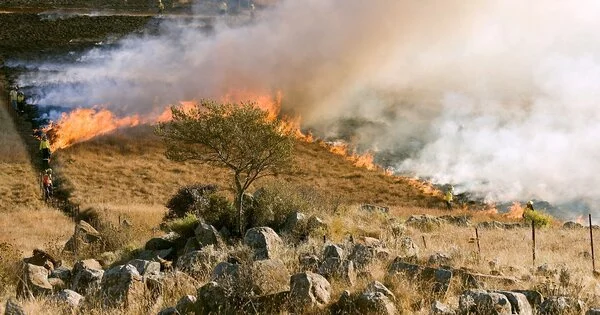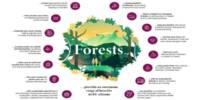Wildfire smoke, especially when carried by the wind and dispersed over long distances, can have serious consequences for health, wealth, and mortality. According to new research, smoke particulates from wildfires could cause 4,000 to 9,000 premature deaths and cost the US $36 to $82 billion per year. The study was published in Science of the Total Environment under the title “Quantifying the Premature Mortality and Economic Loss from Wildfire-Induced PM2.5 in the Contiguous United States.”
“We think of automobile tailpipes and factory emissions polluting our air,” said Oliver Gao, a senior author on the study and a professor of civil and environmental engineering at Cornell University.
“We don’t always consider air pollution from natural sources, such as wildfires. Climate change is causing more weather extremes such as storms and hurricanes, but it may also cause more wildfires”, according to Gao. “The early June wildfires in Quebec affected human health hundreds of miles away in distant cities such as New York, Philadelphia, Baltimore, and Washington.”
Wildfire affects our health. In this era of climate change, if we remove flammable vegetation and do things like create green fire breaks and reduce the fuel for the fires, we can substantially decrease the harm of smoke downwind in populated areas.
Oliver Gao
Wildfires emit fine particulate matter (PM2.5), which is composed of inhalable organic compounds, aerosols, and metals that are 2.5 microns or less in size and can enter the lungs and bloodstream.
For their current updated model, the researchers used satellite wildfire emission and air quality (PM2.5) data collected from 2012 to 2014 and assessed how smoke from wildfires could impact human health and economies. According to the study, metropolitan areas near fire sources, such as Los Angeles, Houston, and Atlanta, will likely face a large health burden and corresponding economic loss.
Wildfire smoke can have a negative impact on respiratory health, particularly in vulnerable populations such as the elderly, young children, and people with pre-existing respiratory conditions. Fine particulate matter (PM2.5) in smoke can enter the lungs and cause or exacerbate respiratory symptoms like coughing, wheezing, shortness of breath, and throat irritation. Long-term exposure to wildfire smoke may also increase the risk of cardiovascular disease and other systemic effects.

The researchers estimated that similar events would result in 86 premature deaths and $780 million in economic costs in the New York City metropolitan area, which was recently affected by the Quebec wildfire in early June.
California, Florida, Texas, Georgia, Alabama, and North Carolina are likely to have the highest number of premature deaths as a result of the volume of particulate matter spread by the smoke. Gao believes that laws and regulations, such as planned events to thin forests, could reduce and mitigate the harmful effects of wildfires.
“Wildfire affects our health,” he said. “In this era of climate change, if we remove flammable vegetation and do things like create green fire breaks and reduce the fuel for the fires, we can substantially decrease the harm of smoke downwind in populated areas.”
Wildfires and the smoke they produce can have a significant economic impact. Firefighting efforts, property damage, and infrastructure loss are among the direct costs. Furthermore, smoke-filled air can have an impact on outdoor activities, tourism, and recreational industries in affected areas. Due to employee health issues, businesses may experience decreased customer traffic, cancellations, and decreased productivity. Individuals and the healthcare system may be burdened by the costs of healthcare utilisation and treatment for smoke-related illnesses.
















